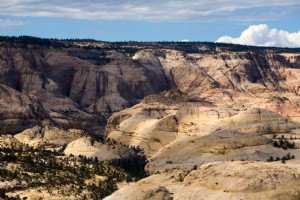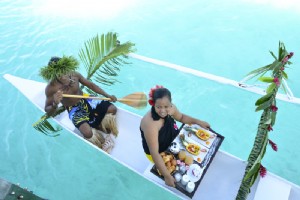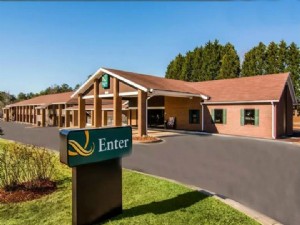ディレクトリ
交渉
アフリカの多くの地域で、 特に市場や工芸品や骨董品の屋台では、 アイテムは売り手が得ることができるものは何でも価値があります。交渉のコツをつかんだら、 それはすべて楽しみの一部です。ハグラーがあなたを引き裂こうとすることはめったにありません、 だから、熱くなって気にする必要はありません。あなたが支払う準備ができている価格を決定し、あなたがそれを得ることができない場合は、 丁寧に断り、先に進みます。
危険と煩わしさ
アフリカへの旅行者の圧倒的多数は、以下の問題に遭遇することなく帰国します。そうは言っても、 潜在的な問題に注意し、あなたについてのあなたの知恵を保ちます。
- 目的地を注意深く調べ、潜在的な問題箇所を事前にメモしてください。
- 常にあなたの所有物に慎重になってください。持ち運びはできるだけ少なくし、宝飾品や時計は着用しないでください。現金の大部分をゆったりとした衣服の下に隠しておきます。
- 暗くなってから街を歩いてはいけません。タクシーに乗ります。
- 意図的かつ自信を持って歩きます。あなたが失われていることを決して明らかにしないでください(あなたが失われているとしても!)。
- オーストラリア外務貿易省 (www.smartraveller.gov.au)
- カナダ外務・国際貿易省 (www.voyage.gc.ca)
- フランスのMinistèredesAffairesÉtrangèresetEuropéennes (www.diplomatie.gouv.fr/fr/conseils-aux-voyageurs)
- イタリアのMinisterodegli Affari Esteri (www.viaggiaresicuri.mae.aci.it)
- ニュージーランド外務貿易省 (www.safetravel.govt.nz)
- 英国外務・英連邦事務所 (www.gov.uk/foreign-travel-advice)
- 米国国務省 (www.travel.state.gov)
犯罪
ほとんどのアフリカ人はまともです、 訪問者からの尊敬と正直な生活を送る機会だけを望んでいる勤勉な人々。一部のアフリカ諸国では極度の貧困レベルがあっても、 強盗率は信じられないほど低いです。たとえそうであっても、 あなたはいくつかの都市の路上で警戒する必要があります。ナイロビ(ケニア)、 ラゴス(ナイジェリア)、 ダカール(セネガル)、 アビジャン(コートジボワール)とヨハネスブルグ(南アフリカ)はすべてエッジの効いた評判があります。ひったくりやスリは最も一般的な犯罪ですが、 しかし、暴力的な強盗が発生する可能性があります、 そのため、地域の警告に注意を払う必要があります。
詐欺
アフリカで遭遇する主な迷惑は、さまざまなハスラーです。 宣伝、 常に観光客を簡単な獲物と見なす詐欺師や詐欺商人。これらの人は必ずしも危険ではありませんが、 またはアフリカに固有の、 いくつかの認識と適切な予防措置が推奨されます、 刺されることなくそれらに対処するのに役立つはずです。
ダッドサウンド
市場からCDを購入します。 しかし、ホテルに戻って箱を開けると、中に空のCDが入っています。 または別のアーティストによる音楽。解決策:常に最初にCDを聴いてください。
電話ホーム
あなたは彼が書きたいと言っている地元の子供にあなたの住所を与えます。彼はあなたの電話番号も尋ねます、 そして、あなたは「そのことに害はない」と思います。家に帰る人々が深夜にコレクトコールを受け始めるまで。そして、それらが数百ポンドの料金で緊急ラックを介してコールバックするように求める電話やボイスメールを収集すると、 物事は深刻になる可能性があります。アドレスに固執し、 それでも慎重になりましょう。
警察と泥棒
地元の麻薬のセールスマンはしばしば警察と警戒している、 その後、誰があなたを捕らえ、便利にあなたを「所有している」と見つけます。 または、あなたが既知のディーラーと話しているのを見たことがあると言ってください。逮捕や投獄を避けるために、多額の賄賂が必要になります。さらに複雑にするために、 多くの詐欺師は、金をゆすり取る警官を装っています。警察署に連れて行かれることを主張し、 支払った罰金の領収書を書面で受け取ります。
ツアーに参加します
サファリや地元のアトラクションへの訪問などのツアーを販売することを宣伝します。 そして、あなたが彼と一緒に旅行を買うなら、彼はそれをもっと安くすることができると言います。あなたはバス/フェリー/飛行機のチケットのために咳をします、 さらに、次の目的地での別のツアー、 数日後、現金がなくなり、予約が存在しないことに気付くだけです。事前に少額のみを支払うのが最善です、 推奨される会社や宣伝のみを扱います。
いらっしゃいませ、 友達
あなたは誰かの家に無料で滞在するように招待されています、 数日間食事や飲み物を買うなら。いいですね、 しかし、あなたの新しい友人の食べ物とビールへの欲求は、ホテルに滞在するよりも取引を高くします。もっと真剣に、 あなたが楽しませている間、 他の誰かがあなたのバッグを通り抜けるあなたの「友達」の家に戻ってきます。この詐欺は、観光ゾーンでのみ発生する可能性があります。遠隔地や地方では、本物のおもてなしに出くわすことがよくあります。
戦争地帯
観光客として戦争地帯に行くのは、 率直に言って、 愚かで無責任。あなたが公認の援助機関を支援するためにそこにいて、そうする資格がない限り、 あなたは誰の助けにもならないでしょう、 誘拐されたり殺されたりする可能性が非常に高くなります。
執筆時点では、 アンゴラを訪問することは危険であると考えられました、 ブルンジ、 中央アフリカ共和国、 チャド、 チュニジア、 リビア、 マリ、 ニジェール、 ソマリアと南スーダン、 国内の一部の地域(モーリタニアのサハラ地域など)では、当面は避けてください。
政府の旅行アドバイス
以下の政府のウェブサイトは、旅行者向けの旅行勧告と情報を提供しています。
緊急事態
一般的に言って、 ほとんどのアフリカ諸国の緊急サービスは、自宅で慣れているものではありません。例えば、 奪われたり攻撃されたりした場合、 緊急電話番号をダイヤルするときに、警察が迅速に(またはまったく)応答することを期待しないでください。しかし、 保険金を請求する場合は、警察に出頭して違反を報告する必要があります。 したがって、終日のフォーム入力プロセスを期待してください。同じく、 病気やけがをした場合は、 救急車に電話する時間を無駄にしないでください–病院や診療所に直接タクシーを利用してください。また、民間の医療サービスや英語を話す医師が必要な場合は、 大使館や高級ホテルで道順を尋ねます。
電気
ほとんどの国では220 / 240Vの電流を使用しています。 しかし、110Vと240Vを混合するものもあります。一部(リベリアなど)はまだほとんど110Vを使用しています。一般的、 英語圏の国では、 ソケットは英国式です。アフリカのフランコフォン地域では、それらは大陸ヨーロッパの2ピン品種です。南アフリカにはさらに別のシステムがあります。国によっては、人々が手に入れることができるものなら何でも見つけることができます。一部の国(ボツワナなど)では、2種類のプラグを使用しています。もし可能なら、 旅行前にプラグアダプターを購入してください。
注意:停電や急増は、多くのアフリカ諸国の生活の一部です。
大使館と領事館
大使館があなたのためにできることとできないこと
旅行で困ったら、 大使館が支援できることとできないことを理解することが重要です。あなたがいる国の法律に拘束されていることを忘れないでください、 地元で犯罪を犯した後に投獄された場合、外交スタッフは同情しません。 そのような行動が家庭で合法であるとしても。
本物の緊急事態では、あなたはいくつかの援助を得るかもしれません、 ただし、他のチャネルが使い果たされた場合に限ります。例えば、 緊急に家に帰るために、 無料のチケットはほとんどありません–大使館はあなたが保険に加入することを期待します。あなたのお金と書類がすべて盗まれた場合、 スタッフは新しいパスポートの取得を手伝うかもしれませんが、 しかし、それ以降の旅行のためのローンは問題外です。
より良い面では、 一部の大使館(特に米国大使館)には、セキュリティまたは地域の流行に関する「旅行勧告」が記載された掲示板があります。遠隔地または潜在的に不安定な地域に向かっている場合は、 大使館に登録する価値があるかもしれませんが、 戻ってきたら「チェックイン」します。
緊急および重要な番号
緊急電話番号は国によって異なります。いくつかは一般的な緊急電話番号を持っています、 他の人は警察のために別々の番号を持っています、 消防および救急車サービス。
ほとんどのアフリカ諸国では、 アフリカ内から国際番号をダイヤルするために使用するプレフィックスは00です。主な例外はナイジェリア(009)です。
緊急電話番号 国 019SierraLeone111Côted'Ivoire112Lesotho、 南アフリカ、 ベナン、 ブルキナファソ、 カメルーン、 ナイジェリア、 サントメ・プリンシペ、 アンゴラ、 DRC、 ケニア、 ルワンダ、 ウガンダ、 タンザニア113エリトリア、 赤道ギニア117ギニア-ビサウ、 コンゴ共和国、 トーゴ、 ブルンジ、 中央アフリカ共和国119モザンビーク10111ナミビア122ギニア、 エジプト1515Libya17Mali、 モーリタニア、 ニジェール、 チャド、 ジブチ、 セネガル、 ガンビア18アルジェリア19モロッコ177ガボン191ガーナ197チュニジア888ソマリア911リベリア、 Ethiopia999Botswana、 マラウイ、 スワジランド、 ジンバブエ、 スーダン、 南スーダン、 ザンビア入退場手続き
アフリカ諸国への入国は国によって大きく異なります。場所によっては、すぐに国境を越えてしまうこともあります。 他の人では、あなたは渡るのを待つのに何時間も費やすでしょう。国境に到着したときにビザを取得することはますます可能になっています、 しかし、決して普遍的ではありません–出発する前に状況を調査してください。有効なパスポート、 通常、少なくとも6か月の有効期間が残っています。 常に必要です。
税関規則
- 一部の国境では、バッグを検索する場合があります。 しかし、深刻な検索はまれです。
- 絶滅危惧種の動物から作られたものはすべて、あなたを困らせる可能性があります。貴重な文化財を輸出する場合は、考古省または関連する国の同様の事務所からの許可も必要になります(いいえ、 あなたがビーチで買った「黒檀」のカバの彫刻ではなく、靴磨きが手に付いています)。これは通常、100年以上前の遺物に適用されます。
- 一部の国では、持ち出しまたは持ち出しできる現地通貨が制限されています。 少量でも問題になる可能性は低いですが。 CFAゾーン内の国間でCFAフランを運ぶことができます。
- いくつかの国には制限的な交換規制がありますが、 また、ドルやその他の「ハード」通貨の詳細を申告書に記入する必要がある場合もあります。
ビザ
短い旅行の場合は、家を出る前にビザを整理してください。長いものの場合、 あなたが行くように手配します。一部の国では、国境で利用できます。 他の人はそうではありません。
詳しくは
規制は変更される可能性があることを忘れないでください。 ですから、入国する前に必ずチェックする価値があります。
地域ビザ
エチケット
物事は大きく異なりますが、 社会的慣習は一般的に保守的なままです。たとえそうであっても、 アフリカ人は通常、外国人旅行者との取引でリラックスしています。マナーを守り、礼儀正しく謙虚に行動することが、犯罪を避けるための鍵となります。
- 挨拶は常に重要です。お急ぎの場合でも、 出会った人に挨拶し、 彼らがどうであるか尋ねてください、 彼らの一日はどうなっているのかなど。
- 長老や権威のある立場にある人を敬意と敬意を持って扱います。
- イライラする状況にある場合は、 我慢して、 フレンドリーで思いやりがあります。対立的な態度は、状況を簡単に悪化させ、地元の感性を傷つける可能性があります。
- 常に人物の写真を撮る許可を求めてください。
- 政府や国に対する声の批判は避けてください。前者はあなたの友人を困らせる可能性があり、多くのアフリカ人は後者を個人的に受け止めます。
- 贈り物を受け取るとき、 両手でそれを受け入れ、 時々わずかな弓で。
- イスラムの伝統を尊重し、露出度の高い服を着ないでください。
LGBTIQ +トラベラー
- アフリカの社会はLGBTIQ +コミュニティに対して保守的です。同性関係は文化的なタブーです、 公然と同性愛者のコミュニティはほとんどありません。公式には、 同性愛(男性、 女性またはその両方)は多くのアフリカ諸国で違法です、 モーリタニアとナイジェリアの一部で死刑の危険を冒す同性愛行為で、 ソマリアとスーダン。
- 起訴されることはめったにありませんが、 裁量が鍵であり、愛情表現を公に示すことは一般的に避けるべきです。 同性愛者と異性愛者の両方のカップルに適用されるアドバイス。
- ケープタウンはアフリカで最もゲイフレンドリーな都市です。 活気のあるクラブシーンと居心地の良い雰囲気で。
資力
Afriboyz (www.afriboyz.com/Homosexuality-in-Africa.html)大陸中のリソースへの(しばしば日付が付けられた)リンクをチェックする価値があります。
デビッドトラベル (www.davidtravel.com)LGBTIQ +の旅行者向けの専門ツアーを提供する米国を拠点とするツアー会社。
グローバルゲイズ (www.globalgayz.com/africa/)ほとんどのアフリカ諸国のLGBTIQ +コミュニティの状況に関する情報へのリンク。
ILGA (www.ilga.org)多くの西アフリカ諸国のための情報を備えたもう1つの優れたリソース。
保険
盗難や病気をカバーする旅行保険は不可欠です。カメラをサルに盗まれたり、音楽プレーヤーをヤギに食べられたりすることは問題になる可能性がありますが、 アフリカの病院は無料ではないので、医療保険は断然最も重要な側面です。 良いものは安くはありません。病院に行くだけでも費用がかかることがありますが、 ですから、救急車(陸路と空路)と帰国便の対象になっていることを確認してください。
一部の保険契約では、予定外のボートや飛行機の乗車が禁止されています。 または急流下りなどの危険な活動を除外します。 カヌーやハイキングも。他の人はまた、外務省の警告の対象となる国の人々をカバーしていません。他の人はより賢明で、アフリカでの旅行の現実を理解しています。旅行代理店に尋ねるか、ウェブで検索してください。 しかし、買い物をして小さなプリントを読んで、完全に覆われていることを確認してください。
世界的な旅行保険はwww.lonelyplanet.com/travel-insuranceで入手できます。買えるよ、 すでに外出中であっても、いつでもオンラインで拡張して申し立てを行うことができます。
インターネット・アクセス
- ほとんどの首都と主要な町にサイバーカフェがあります、 これらの多くは、Wi-Fiが普及するにつれて姿を消しています。
- 多くのホテルやホステルもインターネットアクセスを提供しています。ミッドレンジおよびトップエンドのホテルはますますWi-Fiを提供しています。時々あなたは支払わなければなりません、しかしほとんどの場合それは無料です。
- 状況は改善していますが、 多くの接続(Wi-Fiとインターネットカフェの両方)は、途方もなく遅くなる可能性があります。 つまり、写真をクラウドにアップロードしたり、添付ファイルをメールで送信したりするのは困難な場合があります。
法的事項
購入、 販売、 すべてのレクリエーショナルドラッグの所持と使用は、アフリカのすべての国で違法です。ほとんどの国では、 あなたが逮捕された場合、あなたには電話をかける権利があります–これはおそらくあなたの大使館にあるはずです。
さもないと、 法的状況は国によって異なります。
マップ
アフリカのミシュラン地図を購入する– No 741 北西、 いいえ745 北東 およびNo746 中央と南 –家を出る前に。いくつかの不一致が予想されますが、 特に道路に関しては、 荒れた道がアップグレードされ、滑らかな高速道路が甌穴の災害になるにつれて。英国のこれらおよびその他のアフリカの地図については、 Stanfords(www.stanfords.co.uk)をお試しください。フランスでは、 IGN(www.ign.fr)は、パリの店舗でシートマップを販売しています。
メディア
新聞などのマスメディアの可能性を疑う人はいないが、 アフリカでの開発のためのツールとなるラジオ局やテレビ、 大陸のメディア業界は多くの問題に悩まされています。アクセスは1つです。 多くの人々がまだ地方に住んでいるので、 インフラストラクチャがほとんどまたはまったくありません。多くの腐敗した政府はまた、国営メディアを除くすべてを容赦なく抑圧している。
この地域の報道の自由の優れたバロメーターは、国境なき記者団(www.rsf.org)がまとめた年次報道の自由指数にあります。 これは、独立したメディアが享受している自由に応じて180か国をランク付けしています。 2016年にエリトリアが最後に来ました(北朝鮮に遅れをとっている唯一の国)、 スーダン(174位)、 ジブチ(172位)、 赤道ギニア(168位)、 ソマリア(167位)、 リビア(164位)、 ルワンダ(161位)とエジプト(159位)もひどい状況でした。ナミビア(17位)とガーナ(26位)はアフリカ本土で最もパフォーマンスの高い州であり、英国(38位)と米国(41位)の両方を上回りました。
同時に、 多くのアフリカ人は、国際的なメディアによる大陸に関する多くの報道が、絶望的な事例としてアフリカの不公平な肖像画を描いていると感じています。 戦争に悩まされて、 飢饉と腐敗。 1つの有名な例では、 2000年5月13日号 エコノミスト 単に「絶望的な大陸」と題されました。
インターネット
アフリカ人は現在、インターネットを使用して、国が資金提供するメディアのしばしば信頼できない報道を回避しています。 一方、地方の女性などのグループは、 過去に医療と人権に関する情報へのアクセスを拒否された人、 オンライン教育リソースへのアクセスによって権限を与えられています。そのような草の根のサイバー教育プロジェクトの多くはまだ始まったばかりですが、 しかし、エキサイティングな時代が到来しています。
インターネットの力、 特にソーシャルメディア、 北アフリカ全体でのアラブの春の蜂起で強く前面に出た。それ以来、一部の抑圧的なアフリカ政府は、インターネットの使用をさらに検閲および管理するための予防措置を講じています。エチオピアは、ソーシャルメディアやその他のインターネットサイトへのアクセスを一貫してブロックしている国の1つです。
新聞&雑誌
アフリカ全土で利用できる新聞や時事雑誌に不足はありません。 毎月を含む ニューアフリカン (www.newafricanmagazine.com)および 今日のアフリカ (www.africatoday.com)。
NS 東アフリカ (www.theeastafrican.co.ke)は、ケニアで起こっていることの概要を説明するのに役立ちます。 タンザニアとウガンダ。南アフリカの週刊新聞 メール&ガーディアン (www.mg.co.za)は非常に尊敬されており、大陸のさまざまな機能を備えています。あなたが西アフリカにいて、あなたのフランス語がよく油を塗っているなら、 ジュンヌ・アフリック (www.jeuneafrique.com)は、高く評価されている週刊ニュースマガジンです。
アフリカのほとんどの国のさまざまなウェブサイトや地元の新聞へのリンクについては、 いくつかの汎アフリカのサイトと同様に、 World Newspapers(www.world-newspapers.com/africa)にアクセスしてください。
無線
ラジオは、アフリカで群を抜いて最も人気のある通信媒体であり続けています。 最も遠い田舎の村人でさえ、最新のニュースや音楽を聞くためにパチパチと音を立てるラジオの周りに集まっています。チャリティーFarmRadio International(www.farmradio.org)などの革新的なプロジェクトは、アフリカの約40か国の地方ラジオ放送局をサポートしています。
大陸をカバーする場合は、 しかし、 地元の人や旅行者は国際放送に耳を傾けます。ほとんどが専用のアフリカスロットを持っています。信頼できるBBCワールドサービス(www.bbc.co.uk/worldserviceradio)と同様に、 Voice of America(www.voanews.com)とRadio France Internationale(www.rfi.fr)は、根強い人気があります。アフリカ人からのアフリカのニュースを聞きたい場合は、 Channel Africa(www.channelafrica.co.za)をお試しください。 南アフリカ放送協会の国際ラジオサービス。
テレビ
アフリカのテレビの所有権は世界の他の場所よりもはるかに低く、テレビはほとんどが高級品のままです。 アフリカの貧しい住民のほとんどは利用できません。暗くなった後、多くのアフリカの町や村を歩き回ってください。 しかし、 そして、あなたはテレビの薄暗い青い輝きに出くわす可能性があります、 多くの場合、20人または30人の聴衆がその周りに集まり、地元の石鹸やサッカーの試合の最新エピソードを見ることができるように、戸口に設置されます。
一部のアフリカ諸国の豊かさが増している兆候は、2016年に Digital TV Researchは、サハラ以南のアフリカ(南アフリカを除く)の約224万世帯がデジタルTVを受信したと報告しました。また、アフリカのこの地域全体でのデジタルTVの普及率は、2021年までに99.9%に急上昇し、世帯数は4倍の7,500万人近くになると予測しています。
お金
ATMはますます一般的になっていますが、ATMに依存したり、クレジットカードで支払うことはできません。常に十分な現金を持ってください。
ATM
- 多くの(すべてではありませんが)アフリカ諸国では、クレジットカードまたはデビットカードを使用して現地の現金を引き出すことができます。ビザは最も広く受け入れられているカードです。料金は低く、為替レートは通常良好ですが、 ただし、出発する前に、ホームバンクまたはカードプロバイダーに確認してください。
- ATMの数は増えていますが、 ほとんどはまだ首都や主要な町にありますが、 さらに、通常、1日あたりの引き出し限度額があります。そのうえ、 危険な電話回線のため、 彼らは頻繁に誤動作します、 そのため、バックアップとして多額の現金が必要になります。
- お金を引き出すときは常にあなたについてのあなたの知恵を保ちなさい、 ATMは泥棒の標的になることが多いためです。日中は忙しい場所でそれらを訪問してみてください、 離れる前にお金をしっかりと隠してください。
ブラックマーケット
為替レートが管理されている国では、 いわゆる闇市場で非公式の両替商と取引することで、ハードカレンシーでより多くの現地通貨を手に入れることができます。 銀行や局に行く代わりに。これはコストに役立ちます、 しかし、それは違法であり、時には危険です–それをする前によく考えてください。
しかし、 銀行や取引所が閉鎖されているときに地元の現金がない場合は、非公式の方法に頼らなければならない場合があります。ホテルやツアー会社が役立つかもしれません、 料金はお粗末ですが。輸入品を販売しているお店をお試しください。ただし、慎重に行ってください。 '銀行は閉鎖されています。 助けてくれる人を知っていますか?」鈍い「D 'あなたはお金を変えたいですか?」よりも優れています。
為替レートが無料である(したがって闇市場がない)国でも、 両替商は、銀行がない国境に潜んでいることがよくあります。違法ですが 彼らは税関職員の完全な視野で活動し、 したがって、この角度からのトラブルは起こりそうにありません。
両替商自身からのトラブルの可能性が高くなります、 だからあなたが為替レートを知っていることを確認してください、 そして、すべての地元の現金を注意深く数えます、 前 あなたはあなたのお金を手渡します。古いメモや折りたたまれたメモに注意してください。計算機は、トランザクションでゼロまたは2を見逃さないことを保証します。そして、 'クイックに注意してください、 それは警察のトリックです、 あなたがあまりにも早くお金を渡すことに慌てているところ。常識を働かせれば問題ありません、 ただし、信頼できる銀行または取引所に到着するまで、必要なものをカバーするために少量のみを変更することをお勧めします。
クレジットカード
- クレジットカードまたはデビットカードは、ツアーやフライトなどの高価なアイテムに便利です。 しかし、ほとんどのエージェントは高額の10%の追加料金を追加します。したがって、ATMから現金を引き出すためにカードを使用する方が安いことがよくあります。 利用可能な場合。
- ATMがない場合は、 別のオプションは、カードを使用して地元の銀行からお金を引き出すことです。 ただし、注意が必要です。これにも約5%の料金がかかります。 終日のプロセスになる可能性がありますが、 早めに行ってください。
- 家を出る前に、 アフリカのどの銀行があなたのカードを受け入れるかをあなたの銀行に確認してください(そして料金について調べてください)。 Visaのロゴが付いたカードは、最も簡単に認識されます。 MasterCardは多くの場所で受け入れられていますが。
- どんなカードを使っても、 プラスチックに完全に依存しないでください、 コンピュータや電話の故障はあなたを立ち往生させる可能性があるので。常に現金または(あまり役に立たない)トラベラーズチェックも持ってください。
- クレジットカード詐欺を回避するために、 常にトランザクションを注意深く監視し、生成された追加のトランザクションスリップを破棄するようにしてください。 無邪気であろうとなかろうと。
通貨
現金でもトラベラーズチェックでも、 または両方、 家を出る前に、あなたが取る通貨について考えてみてください。これはあなたが訪問する国に依存します 。 あなたが決めるどんな通貨でも、 高額と低額の混合物を取ります。国を出る前にほんの数日続くように両替する必要がある場合は、小額の金額が便利です。
東アフリカと南部アフリカ
最も容易に認識される国際通貨は米ドル(US $)です。ユーロ(€)もご利用いただけます。 英国ポンド(UK£)および南アフリカランド(R)、 後者は東アフリカではあまり役に立ちませんが。他のヨーロッパ諸国からの通貨またはカナダドルが時々受け入れられるかもしれません、 しかし、それを当てにしないでください。
西アフリカと中央アフリカ
これらの地域の多くの国では、CommunauteFinancièreAfricainefranc(通常はCFAに短縮–フランス語で「say-eff-aah」と発音)と呼ばれる共通の通貨を使用しています。 そしてここで、ユーロは銀行や局によってはるかに容易に認識されます。多くの場合、米ドルやその他の通貨はまったく受け入れられません。実際には2つのCFAゾーンがあります。西アフリカ(またはBanque Centrale des Etats de l'Afrique de l'Ouest)ゾーン、 ベナンを含む、 ブルキナファソ、 コートジボワール、 ギニアビサウ、 マリ、 ニジェール、 セネガルとトーゴ;中央アフリカ(またはBanque des Etats de l'Afrique Centrale)ゾーン、 チャドを含む、 カメルーン、 中央アフリカ共和国、 コンゴ、 ガボンと赤道ギニア。
CFAは正確に655.957から1ユーロに固定されています。現金ユーロをCFAに変更する場合、通常はそれが得られるレートです(ただし、トラベラーズチェックには料金がかかります)。しかし、 邪魔にならない場所の中には、少し少ないものもあります。
技術的には、 西アフリカCFAを中央アフリカCFAに、またはその逆に1対1の割合で交換できるはずです。 しかし実際には、オッズを少し上回ったり下回ったりします。 料金によって異なりますが、特に、最寄りの銀行から非常に遠く離れた国境の郵便局でトレーダーと取引している場合はそうです。
非CFA西アフリカ諸国では、 旅行者にとって最も便利な通貨はユーロと米ドルです。
北アフリカ
ユーロと米ドルが最も一般的です。英国ポンドも一部の場所で受け入れられています。
警告:古いドルの問題
米ドルで旅行する予定の場合は、 読む。まず、 高額紙幣(つまり、50米ドルまたは100米ドル)の場合は料金が高くなります。さらに重要なことには、 米国は1990年代半ばに100ドル紙幣のデザインを変更し、古いスタイルの100ドル紙幣は一部の場所で受け入れられないことに注意してください。 特に透かしをチェックするための軽い機械を持っていないもの。念のため、 2006年以降の米ドル紙幣(特に100米ドル)を持参してください。そうしないと、事実上役に立たないメモになってしまい、家に帰るまで変更できない可能性があります。
為替相場
現在の為替レートについては、 www.xe.comを参照してください。
お金を変える
現金やトラベラーズチェックは、都市や観光地の銀行や外貨両替所で現地通貨に両替できます。現金のための、 局は通常、最高の料金を提供します、 低料金(または無料)で最速のサービス、 しかし、トラベラーズチェックで得られるものは、受け入れられたとしても、哀れなものになる可能性があります。
トラベラーズチェック
- 旅行者にあなたの唯一の資金源をチェックさせないでください。
- 長所は、彼らが安全であるということです– ATMは時々機能せず、現金になりません、 トラベラーズチェックとは異なり、 紛失した場合、通常は交換できません。
- 短所は、多くの国がトラベラーズチェックを受け入れないことです。 and in those that do it's rare to find a bank that will change them outside major cities, commissions can be prohibitive, you'll spend a lot of time waiting and they're often a pain to deal with.
- When exchanging travellers cheques, most banks also check the purchase receipt (the paper you're supposed to keep separate) and your passport, so make sure you have these with you (and keep a copy elsewhere in a secure location).
- You can sometimes pay for items such as safaris and activities directly with travellers cheques, but most operators add a surcharge – usually 10%, but sometimes up to 20%, because that's what banks charge them.
Tipping
The situation with regard to tipping varies across the continent, but as a general rule the following applies:
Hotels &Restaurants Usually expected in top-end hotels and restaurants, very rarely in cheaper places.
Safari Lodges Count on US$10 per guest per day, plus more for guides.
タクシー Rounding up is usually sufficient.
Opening Hours
Standard opening hours vary from country to country. As a general rule, the working week runs from Monday to Friday; some shops and tourism-related businesses sometimes open on Saturdays, either all day or just in the morning. In some predominantly Muslim countries, some businesses may close on Friday (either all day or just in the morning), and instead open on Sunday.
Photography
A simple point-and-shoot is fine for mementos of people, landscapes, market scenes and so on, but for better-quality shots, especially of animals, you'll need a zoom lens and maybe an SLR camera with changeable lenses. It's also worth taking a couple of spare batteries with you and charging them whenever you have a reliable electricity source for those times when you're travelling in remote areas. For the same reasons, take extra memory cards and a cleaning kit. Africa's extremes of climate, especially heat, humidity and very fine sand, can also take their toll on your camera, so always take appropriate precautions; changing lenses in a dust-laden wind is, 例えば、 a recipe for disaster.
Other useful photographic accessories might include a small flash, a cable or remote shutter release and a tripod. Absolutely essential is a good padded bag, containing at least one desiccation sac, and sealed to protect your camera from dust and humidity. Avoid leaving your camera on the floor of buses or cars, as the jolting could well destroy the delicate inner workings of the lens.
For more advice, Lonely Planet's Guide to Travel Photography is an excellent resource, full of helpful tips for photography while on the road.
役職
If you want to send a letter, parcel or postcard, it's always better doing this from a capital city. From some countries, the service is remarkably quick (just two or three days to Europe, a week to the USA or Australia). From others it really earns the snail-mail tag, but it's still more reliable than sending stuff from really remote areas.
You can use the poste-restante service at any post office where mail is held for collection. Letters should be addressed clearly with surname underlined and in capitals, to '(Your Name), Poste Restante, General Post Office, ルサカ、 Zambia', 例えば。 In French-speaking countries, send it to 'Poste Restante, PTT', then the name of the city.
To collect mail, you need your passport, and to sometimes pay about US$0.50 per item. Letters sometimes take a few weeks to arrive, so have them sent to a town where you'll be for a while or will be passing through more than once – although in some places mail is only held for a month, then returned to the sender.
The price, quality and speed for parcel post varies massively from place to place; courier companies can sometimes be more reliable than government postal services and not always a lot more expensive.
Public Holidays
Islamic Holidays
Since the Islamic calendar is based on 12 lunar months totalling 354 or 355 days, holidays are always about 11 days earlier than the previous year. The exact dates depend on the moon and are announced for certain only about a day in advance. Estimated dates for these events are:
イベント 2017年 2018年 2019年 2020 2021年 Ramadan begins 28 May17 May6 May25 Apr14 Apr Eid al-Fitr 27 Jun16 Jun5 Jun25 May14 May Tabaski 2 Sep22 Aug11 Aug1 Aug21 Jul Eid al-Moulid 12 Dec1 Dec20 Nov9 Nov30 OctChristian Holidays
Most countries with significant Christian populations celebrate one or more of the following:
Good Friday March or April
Easter Sunday March or April
Easter Monday March or April
Christmas Day 25 December
Other Holidays
In addition to the Islamic ceremonies, there are many public holidays – either government or religious – when businesses and government offices are closed. Nonreligious public holidays may include New Year's Day (1 January) and Labour or Workers' Day (1 May). Government holidays are often marked with parades, dancing and other such events, while the Christian religious holidays invariably centre on beautiful church services and singing.
smoking
Smoking is banned in public places (the definition of which varies from country to country) in most African countries and stiff penalties sometimes apply (from fines to prison sentences!). Countries which lag behind with anti-smoking legislation include Malawi, モザンビーク、 Guinea, Guinea-Bissau, Benin, Mauritania, Sierra Leone, São Tomé &Príncipe and Togo.
Telephone
Local SIM cards can be used in European and Australian phones. Other phones must be set to roaming to work – be wary of roaming charges.
More Information
In most capital cities and major towns, phone connections are good. Thanks to satellite technology, it's often easier to make an international call than to dial someone 20km up the road. Rates vary from country to country, ranging from US$5 to US$15 for a three-minute call to Europe, the USA or Australia. Many cybercafes now offer dirt-cheap internet-connected phone calls, but the quality of the line depends on the quality of the internet connection – if it's a dial-up connection as opposed to ADSL, it's unlikely to be worth the effort.
Bureaus
To call long distance or even locally, you're usually better off at a public-phone bureau than a booth in the street. In each city there's normally a bureau at the main post office, plus numerous privately run bureaus where rates can be cheaper and the service faster. At most bureaus you can also send or receive faxes.
Mobile Phones
Mobile (cell) phones are almost universal in Africa, with connection rates, call rates and coverage improving all the time, although you're unlikely to have coverage in remote rural areas. You can buy local SIM cards just about everywhere where there's mobile coverage. Some local companies also offer rates for international calls that work out cheaper than using landlines.
To check whether your phone will work in the African countries you plan to visit, contact your network provider. Ask about charges as well – and don't forget that if anyone rings you while you're overseas, the bulk of the cost goes on あなたの bill.
スナップショット
Buy local SIM cards to access local mobile networks cheaply.
Phonecards
In some countries you can buy phonecards that let you dial a local number, enter a PIN, and then make cheap international calls. You can also buy scratchcards to top up mobile phones, and phonecards to use in public booths instead of coins.
時間
Africa is covered by four time zones, from UTC (formerly GMT) in the west to UTC plus three hours in the east. Crossing from Chad to Sudan there's a two-hour difference, but elsewhere it's one hour or none at all. At borders where there's a one-hour time difference (eg Malawi–Tanzania), some have their opening and closing hours coordinated to avoid problems, but others don't – try to plan your travels at these crossings to avoid getting caught in no-man's land after you've been stamped out of one side, only to discover that the other side is already closed.
Toilets
There are two types of toilet in Africa:the Western style, with a bowl and seat (common in most midrange or top-end hotels and restaurants); and the African style, a hole in the floor that you squat over. You might even find a combination of the two, with a Western-style toilet bowl propped over a hole in the floor. Standards vary tremendously, from pristine to those that leave little to the imagination as to the health or otherwise of the previous occupant. In our experience, a non-contact hole in the ground is better than a filthy bowl any day.
In rural areas, squat toilets are built over a deep hole in the ground and called 'long-drops'; the crap just fades away naturally, as long as the hole isn't filled with too much other material (such as tampons – these should be disposed of separately). Toilet paper is OK – although you'll need to carry your own. In Muslim countries, a jug of water or hosepipe arrangement is provided for the same task – use your left hand to wipe, then use the water to wash your hand. This is why it's a breach of etiquette in many countries to shake hands or pass food with the left hand.
Some travellers complain that African toilets are difficult to use, but it only takes a little practice to accomplish a comfortable squatting technique, and you'll soon become adept at assuming the position in one swift move, while nimbly hoiking your trouser hems up at the same time so they don't touch the floor.
Tourist Information
Much of Africa isn't geared for tourism, and decent tourist offices are rare. Some countries have a tourist-information office in the capital, but apart from a few tatty leaflets and vague advice from the remarkably little-travelled staff, you're unlikely to get much. Tour companies, hotels and hostels are often better sources of information.
Travel with Children
Approached sensibly, many families find an African holiday a rewarding and thrilling experience. While some posh hotels, lodges and tented camps ban kids under a certain age, some higher-end safari lodges run special wildlife-watching programs for kids, and babysitting services are available in some midrange and top-end hotels.
On the whole, Africans adore children, and wherever your kids go they will be assured of a warm reception and a host of instant new friends.
Practicalities
Outside the main cities, you can pretty safely assume that disposable nappies won't be available, so bring everything you need with you. Child car seats, high chairs in restaurants and cots in hotels are rare except in top-end hotels in tourist areas. Hygiene is likely to be a major issue – carry a hand sanitiser with you.
Accessible Travel
There are more people with disabilities per head of population in Africa than in the West, but wheelchair facilities are virtually nonexistent. Don't expect things like wheelchair ramps, signs in Braille, or any other facilities that are available in tourist areas in other parts of the world. Most travellers with disabilities find travel much easier with the assistance of an able-bodied companion, or with an organised tour through an operator that specialises in arranging travel for those with disabilities. Safaris in South Africa and diving holidays in Egypt are both easily arranged with companies like these.
A final factor to remember, which goes some way to making up for the lack of facilities, is the friendliness and accommodating attitude of the African people. In the majority of situations, they will be more than happy to help if you explain to them exactly what you need.
Resources &Organisations
Before setting out for Africa, travellers with disabilities should consider contacting any of the following organisations, which may be able to help you with advice and assistance:
- Access-Able Travel Source (www.access-able.com) US-based site providing information on disabled-friendly tours and hotels.
- Accessible Travel &Leisure (www.accessibletravel.co.uk) Claims to be the biggest UK travel agent dealing with travel for people with a disability, and encourages independent travel.
- Endeavour Safaris (www.endeavour-safaris.com) Focuses on Southern Africa.
- Epic Enabled (www.epic-enabled.com) Trips in Southern Africa for people with disabilities.
- Mobility International USA (www.miusa.org) In the US, it advises disabled travellers on mobility issues; it primarily runs educational exchange programs, and some include African travel.
- Society for Accessible Travel &Hospitality (www.sath.org) In the US; offers assistance and advice.
- Tourism for All (www.tourismforall.org.uk) Click on its 'Overseas Travel' page for links, although there's little of interest for travellers.
You can also download Lonely Planet's free Accessible Travel guide from https://lptravel.to/AccessibleTravel.
Volunteering
There are very few openings for ad-hoc volunteer work in Africa. Unless you've got some expertise, and are prepared to stay for at least a year, you're unlikely to be much use anyway. What Africa needs is people with skills. Just 'wanting to help' isn't enough.実際には、 your presence may be disruptive for local staff and management, prevent locals from gaining employment or cause a drain on resources.
For formal volunteer work, which must be arranged in your home country, organisations such as Voluntary Service Overseas (VSO; in the UK) and the Peace Corps (in the US) have programs throughout Africa where people, usually with genuine training (eg teachers, health workers, environmentalists), do two-year stints. Similar schemes for 'gap-year' students (between school and university) tend to be for shorter periods, and focus on community-building projects, teaching or scientific research. Almost all these projects require an additional financial donation, which may be raised by sponsorship and fundraising in your home country.
Volunteering Organisations
The following international organisations are good places to start gathering information on volunteering, although they won’t necessarily always have projects on the go in Africa.
African Impact (www.africanimpact.com)
African Volunteer Network (www.african-volunteer.net)
Australian Volunteers International (www.australianvolunteers.com)
Coordinating Committee for International Voluntary Service (ccivs.org)
Earthwatch (www.earthwatch.org)
Frontier Conservation Expeditions (www.frontier.ac.uk)
Idealist (www.idealist.org)
International Citizen Service (ICS; www.volunteerics.org)
International Volunteer Programs Association (www.volunteerinternational.org)
Peace Corps (www.peacecorps.gov)
Step Together Volunteering (www.step-together.org.uk)
UN Volunteers (www.unv.org)
Volunteer Abroad (www.goabroad.com/volunteer-abroad)
Volunteer Service Abroad (www.vsa.org.nz)
VSO (www.vso.org.uk)
Worldwide Experience (www.worldwideexperience.com)
Weights &Measures
- Weights &Measures Metric units (metres, kilograms, litres etc) are officially used in most African countries.
Women Travelers
As in most countries around the world, women traveling in Africa (alone or with other women) will occasionally encounter specific problems, most often harassment from men. North Africa can be particularly bad from this perspective. And in places where an attack or mugging is a real possibility, women are seen as easier targets than men, so it pays to keep away from these areas (talk to people on the ground to get the latest situation).
しかし、 on a day-to-day basis and compared to many places, travel in Africa is relatively safe and unthreatening, and you'll meet friendliness and generosity far more often than hostility or predatory behaviour. Half of the writers who research in Africa for Lonely Planet are women and most travel alone while doing their job.
そうは言っても、 when it comes to evening entertainment, Africa is a conservative patriarchal society and in many countries it's seen as highly unusual and not respectable for women to go to bars, clubs or restaurants without a male companion. Frustrating as this may be, it's important to keep it in mind.
Some expatriates you meet may be appalled at the idea of a woman traveling alone and will do their best to discourage you with horror stories, often of dubious accuracy. Others will have a far more realistic attitude. When you are on the road, the best advice on what can and can't be undertaken safely will come from local women and fellow women travelers.
Sexual Harassment
As in most countries in the world, unwanted interest from men is an inevitable aspect of travel in Africa for women traveling alone. If you're alone in an uneasy situation, act cold or uninterested and keep walking. If none of this works and you feel unsafe, going to the nearest busy public place, such as the lobby of a hotel, usually works well, or you could try asking for help from local women in a public place. If he persists, asking the receptionist to call the police usually frightens them off.
Part of the reason for the interest is that local women rarely travel long distances alone, and a single foreign female is an unusual sight.
Most African women dress conservatively (upper arms, midriff and legs covered), in traditional or Western clothes. As this is considered culturally appropriate attire, anything different to the norm will draw attention.一般に、 look at what other women are wearing and follow suit.
Sanitary Protection
You can buy tampons and pads in most cities and major towns from pharmacies or supermarkets. Prices are about the same as in Europe (from where they're imported), but you seldom have choice of type or brand. They're rarely found in shops away from the main towns, so you might want to bring supplies if you're spending a lot of time in remote areas.
仕事
It's hard for outsiders to find work in most African countries, as high unemployment means a huge number of local people chase every job vacancy. You will also need a work permit, and these are usually hard to get as priority is rightly given to qualified locals over travellers. You're unlikely to see many jobs advertised, so the best way to find out about them is by asking around among the expatriate community.
Most opportunities are usually in the fields of aid, conservation and tourism (such as working in a lodge or hotel, as a tour guide, as a diving instructor...); the latter sector is the one most likely to be looking for skilled overseas workers at shorter notice.






